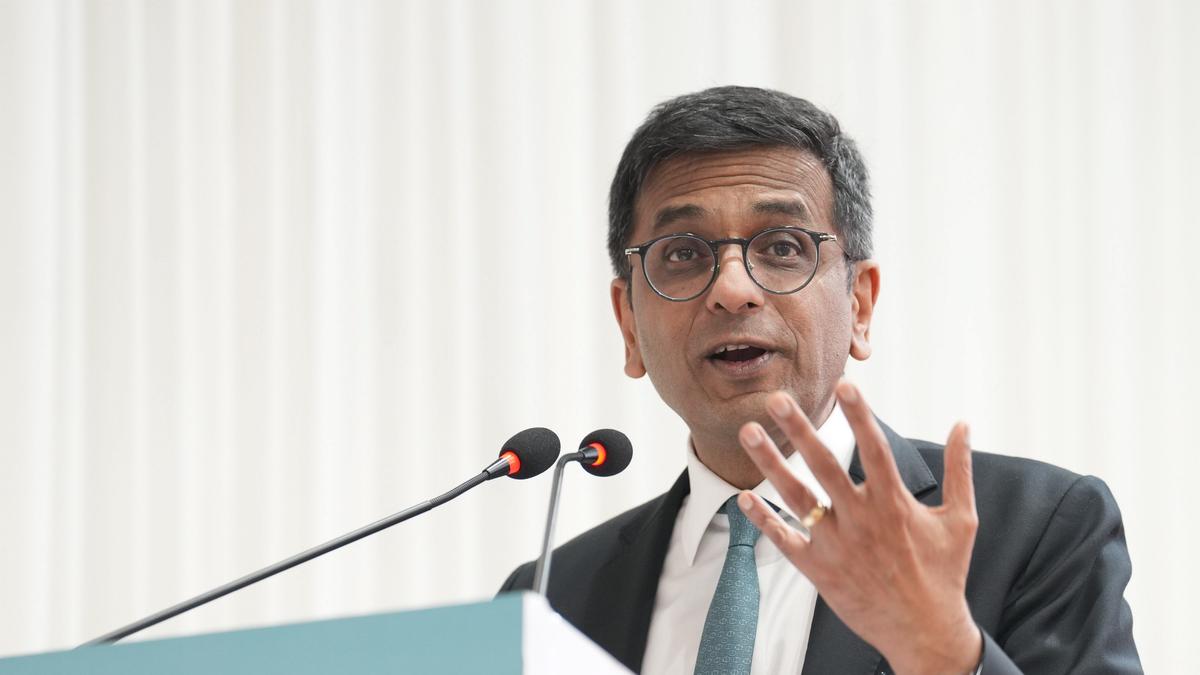
Religious instruction in madrasas part of India’s diverse culture, cannot be ‘wished away’: CJI
The Hindu
Supreme Court defends religious instruction in India, rejects ghettoisation of madrasa education, emphasizes mainstreaming for national interest.
The Supreme Court on Tuesday (October 22, 2024) said India’s centuries’ old history of religious instruction could not be wished away by ghettoising madrasa education.
“Religious instruction is not something which is unique to Muslims. There is religious instruction among Christians, Jews, Hindus, Sikhs. It is a country which is a melting pot of cultures, civilisations, religions… Let us preserve it that way. In fact, the answer to ghettoisation is to mainstream… To allow people to come together. Otherwise, we will be putting people in silos. To be shunted and forgotten,” Chief Justice of India D.Y. Chandrachud observed.
The Chief Justice’s oral observations were made while hearing a challenge to a decision of the Allahabad High Court striking down the Uttar Pradesh Madrasa Education Board Act, 2004. The Act regulated madrasa education. The High Court had found the law unconstitutional for validating a system of education which was grossly in violation of the principles of secularism.
But the top court observed that religious instruction, historically and culturally, had never been anathema in India. Article 23 of the Constitution recognised religious instruction.
There was nothing wrong in a State regulating an institution run by a religious or linguistic minority in the interest of maintaining the excellence of education, the Bench also comprising Justices J.B. Pardiwala and Manoj Misra said.
“We cannot exclude the historical and socio-cultural context that in India we do have religious instruction, whether in the Vedas or Koran or whether it is vedic pathshala or madrasas. What is wrong with the Parliament or a State legislature enacting a law to regulate such institutions only to ensure that while training young minds, they are trained in a manner conducive to the quality of secular education and broader national interest?” the Chief Justice asked.
Senior advocate Guru Krishnakumar argued in support of the High Court decision, saying there was no specific provision in the 2004 Act on secular education. Senior advocate Madhavi Divan, also supporting the High Court decision, submitted that madrasa education’s singular focus or overwhelming emphasis was on religious instruction at the cost of mainstream education. She said such lopsided education hardly equipped students to compete in the mainstream.

The State Education Policy (SEP) Commission, which submitted its report to Chief Minister Siddaramaiah on Friday, has recommended implementing reservation in admissions to private unaided colleges, private universities and government standalone institutions, to Scheduled Castes, Scheduled Tribes and other backward class (OBC) students, as per the reservation matrix in the State.





















 Run 3 Space | Play Space Running Game
Run 3 Space | Play Space Running Game Traffic Jam 3D | Online Racing Game
Traffic Jam 3D | Online Racing Game Duck Hunt | Play Old Classic Game
Duck Hunt | Play Old Classic Game










